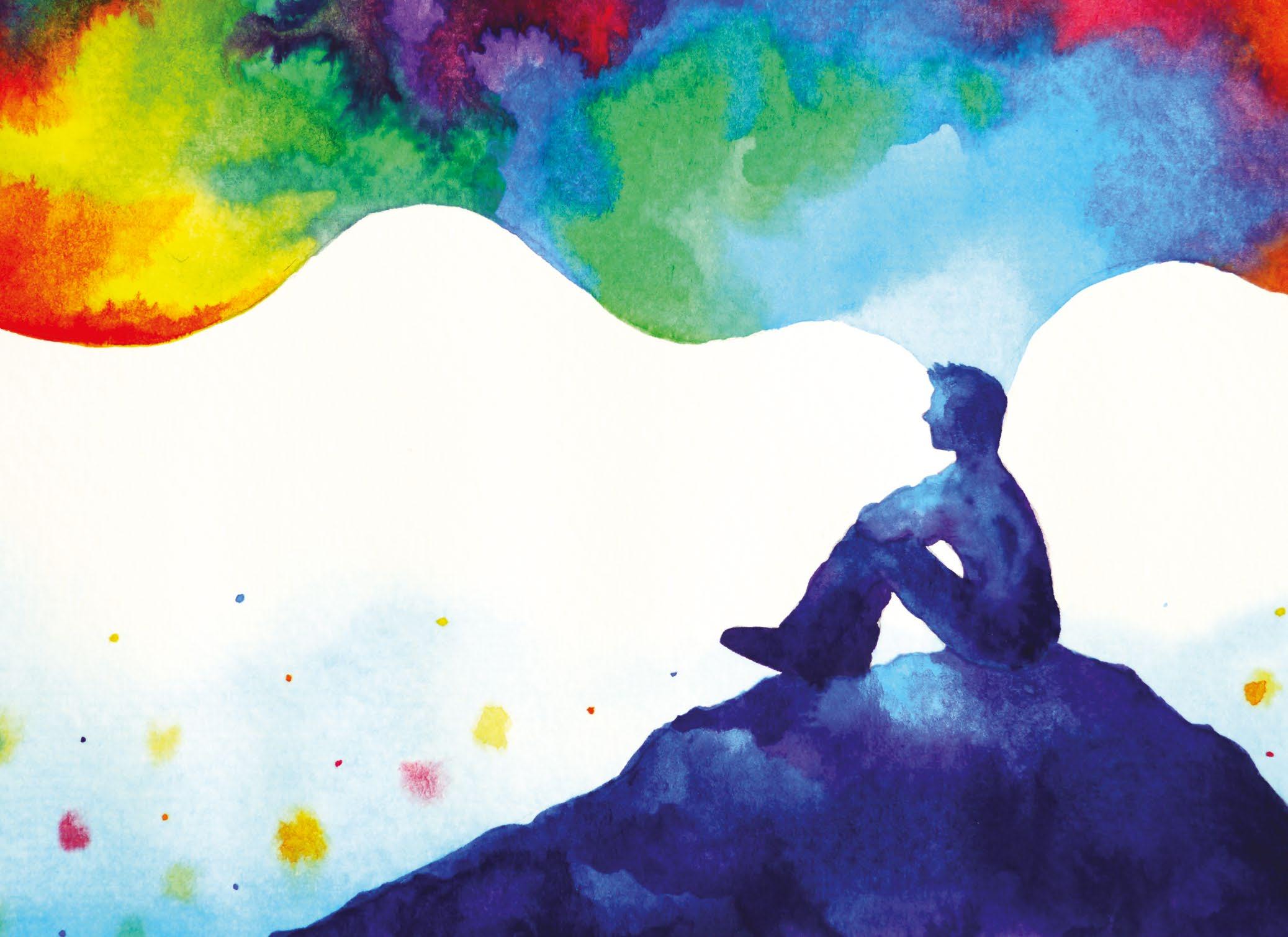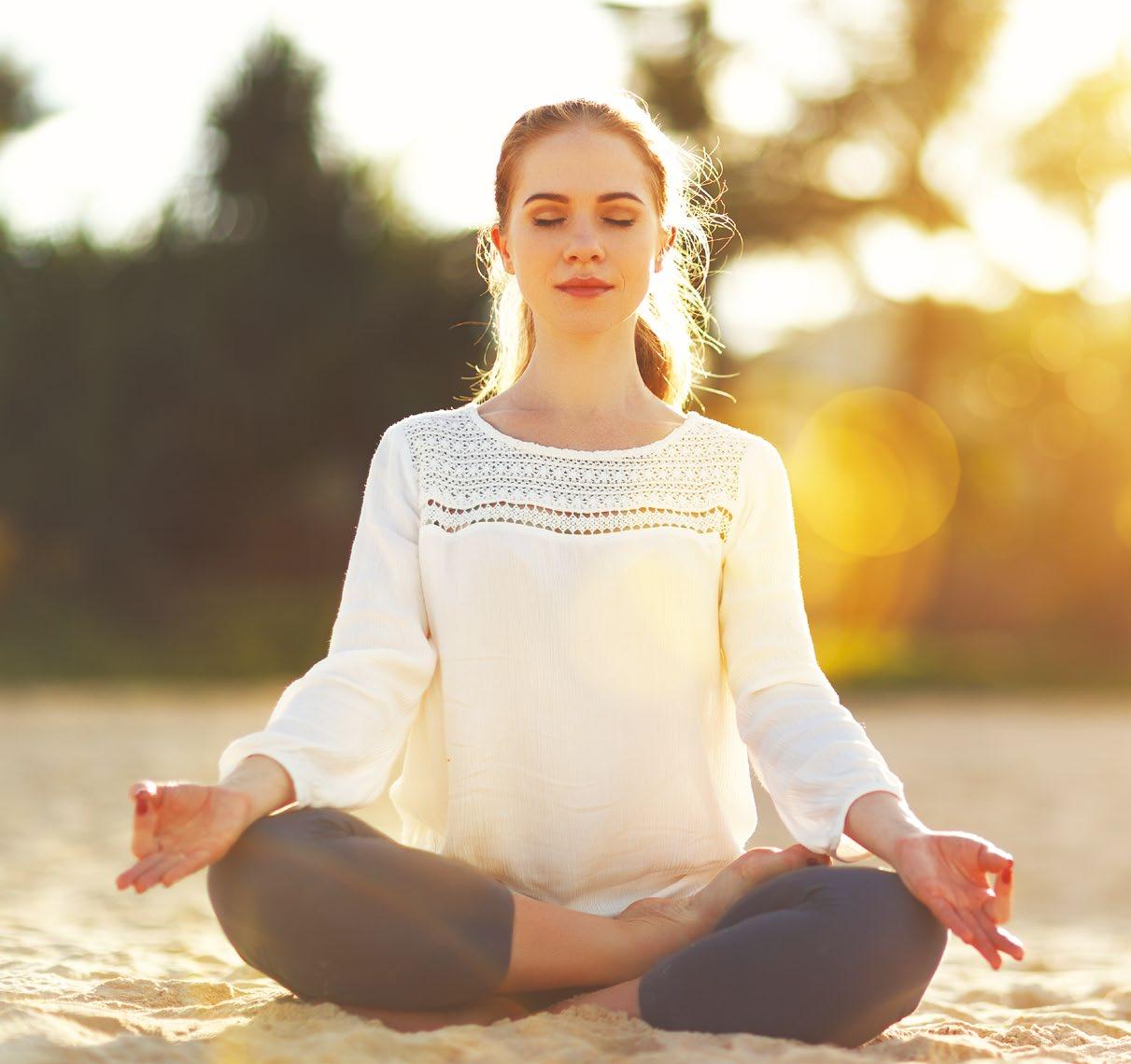
9 minute read
PositiveSPIN!
The days rolled by when movement was limited. We've all had to be creative and think of ways to fill time, and appreciate our families, routines and hobbies, says Virginia Linton.
In times of crisis, most of us just want to hold our loved ones close, get solace from our routines, check in with friends, and take pleasure from walks and fresh air.
It’s a natural instinct, supported by science.
From longevity to emotional wellbeing and surviving medical events, we enjoy better outcomes if there’s someone to hug us, cheer us on, lend an ear, share a joke or a meal with.
But during the recent lockdown, most of what brings reassurance has been off limits. Although distancing is less important now, we’re still relearning how to get back to those human instincts (like hugging) that keep us going.
The novel part of this experience is that we’re sharing sudden and scary times with the entire world. How do we maintain positivity when everyone is also feeling
vulnerable and anxious?
How do we maintain our inner reserves of courage through feelings of isolation or loneliness?
The ideas, activities and rituals that we will grasp onto in the coming weeks, the words or deeds that lift us out of the murk, come in as many shapes and sizes as we ourselves do.
With this in mind, here is a virtual care package with ideas to share, tools to stay occupied and engaged, insights to hold, recipes to nourish, and words to inspire.
Along with suggestions about how we can support and encourage each other.
At its best, 'distancing' can be about gaining a fresh perspective in order to deal with things with a sense of renewed vigour and knowledge.
Let’s work towards that. Together.

PRIORITISE Focus on the basics.
Write down a schedule of your daily routine, but see this as a guideline rather than a regime.
Get as much done on the list as you’re able to, but don’t beat yourself up if you don’t get through it all.
If you don’t manage to get even one thing done today, take comfort in the fact that sometime in your notso-distant personal history, you have achieved absolutely everything on this list!

If you're still in a 'bubble' your world might look something like this: 7:00 Wake up, get out of pyjamas and into an outfit ready to face the day 7:30 15 minutes of fresh air / exercise to a YouTube video (if it’s raining) 8:00 Brain time: NO ELECTRONICS Journal, books, study guide 9:00 Work - answering emails / getting through jobs list / study 12:00 Lunch 12:30 Chores 13:00 Breathe, stretch, meditate 13:30 Work - answering emails / getting through jobs list / study 16:30 15 minutes of fresh air / exercise to a YouTube video (if it’s raining) 17:00 Dinner preparation 18:00 Eat, relax
STOCKING UP Essential services have continued, with pharmacies and doctors operating as usual, and food available from supermarkets and dairies. An interesting legacy of Covid-19 is that many of us have been exploring new ways to access food and supplies:
Consider continuing to shop online. You’ll be able to order exactly what you need, and staff dealing with the orders are well geared on best hygiene practices, all amounting to a smooth, contact-free transaction. Go shopping when there are less people around. This can be tricky to gauge, but if for instance a place you like has re-opened, or an important announcement has been made, wait a day or two before hitting the shops. Keep prescriptions up to date. Ensure you have extras of any medications needed. As things start to run out, add them to your shopping list. Then you won’t be making a last minute dash before the shops close when you discover you’ve run out of something. Add storage-stable food to your cart, plus a few easily prepared meals to save you having to make an urgent trip to the supermarket or online shop. Keep a checklist in a drawer or stuck to the fridge of seldom used but essential items. Pain relievers, antibiotic creams, and batteries can fall into this category. Before you leave the house, take a quick look to see if any of these need replacing. Keep another list of frequently bought items and use it in the same way. Items such as vegetables, fruit, legumes, meats, potatoes, pasta, rice, cleaning products. Online delivery programmes let you save a list of favourites to make your next shop easy.
If you’d like to learn how to prepare and preserve food that will ensure months of avoiding queues and loo paper hogging shoppers, listen to the elderly people in your life.
They know what it’s like to have to ration, with many of them likely to have lived through the Great Depression, the polio pandemic, World War II, and the lean years after. 90 year old Wellington writer Renée’s straight talking article kicks off with, “everything I read is screaming at me that I’m part of the most vulnerable in Covid-19” is hilarious, poignant, and a great reminder of how our elderly are our taonga, not a mere statistic (strong language warning). An amusing listen - thanks Renée!
www.rnz.co.nz
NURTURING THOUGHTS When the stuff churning around inside your head becomes overly negative or repetitive, it’s time to take a break.
Regular meditation helps with stilling the mind.
Place your hand on your diaphragm, and observe it rise and fall as you breathe.
Direct your inhalations downwards so you can feel your chest and lungs opening and expanding.
Sit in a quiet place, and observe whatever is happening around you: busy ants at your feet, clouds drifting above.
Seek connections that take you outside your own sense of self - escape into a book, play music, watch a film online.
Or, daydream!
Letting our minds wander can often lead to renewed bursts of creativity, or help us find solutions that we’ve been unable to reach through conventional means of tackling a problem.
Keep moving Many physical education classes have gone online to provide people with solutions to confinement. If you have active kids at home, try this one: www.playpennies.com
“ISOLATION IS A WAY TO KNOW OURSELVES.” FRANZ KAFKA
Journaling
Our days in what we fondly remember as ‘normal life’ can seem like a blur when we look back on them. Because we’re so used to waking up and knowing exactly how our day is going to take shape, most of us will turn on the autopilot and forget to switch it off. Right now, we are still figuring out how each day is going to unfold. Use this time to keep a record of your experiences. It may be a journal, a blog, photographs, a film, paintings, a short story, or poems about your life. Each individual perspective is important as we emerge from our bubbles. Check in with others and see how they’re doing as your world takes shape post-lockdown. If you are going to compose a journal, make it something that you are able to do easily. You shouldn’t look at this as a chore to dread, but something that gives you relief, strength, and a sense of stability in unpredictable times. What comes of your reflections now will be fun to share and look back on later!
Carers NZ Online
We have many different resources to help you move forward and have 'mini breaks' at home. Our Take 1, Take 5 Weekly Planner is a tool to help you organise regular breaks each week, while our YouTube channel has some useful clips (click here to follow along with Anna Filliol's Stretch, Focus & Relax exercises, or Wayne Halkyard's Strength for Life 15 minute strength-building programme). Our Time Out Guide offers insights to help friends, families, whānau and aiga understand how important it is for those in caring roles to have regular breaks, even in the most challenging circumstances. There’s also information and ideas to initiate micro-breaks during the day - as even small amounts of respite can make a big difference to how you feel about and manage caring for yourself or others. All of our resources are free to view or download at www.carers.net.nz
Family ancestry Would you enjoy tracing your lineage? The National Library has resources available for researching family history, through genealogy websites, old newspapers, or ships’ passenger lists: www.govt.nz For those with an Auckland library card, Ancestry.com is now temporarily available free from home through its website. Log into 'My Info' and use the usual link to Ancestry from within the Auckland Libraries website. If you aren’t a member, you can sign up for a free eMembership. This gives you access not just to Ancestry.com but also ebooks, databases, enewspapers, and Beamafilm. www.aucklandlibraries.govt.nz Free movies for those with a library card: www.beamafilm.com
“A SEASON OF LONELINESS AND ISOLATION IS WHEN THE CATERPILLAR GETS ITS WINGS. REMEMBER THAT NEXT TIME YOU FEEL ALONE.” MANDY HALE
Create a retreat Turn your home into a haven. Working with the basic elements of earth (plants, landscaping), water (fountains), and fire (fire pit, candles), transform your outdoor living space into a destination. It may be difficult for awhile to source every item you’d like, so use this time to get creative. Unearth the hammock and add flowers to create a comfortable reading spot in the garden. Dining al fresco on a picnic blanket under a beach umbrella can be a great way to escape without leaving the comforts of home.
Meditation apps such as Waking Up and Headspace offer an accessible way to get started. Have a search for them through app stores such as www.play.google.com/store
To support your mental health, look for online help.
Try www.justathought.co.nz/ which has online courses to manage anxiety and feelings of sadness. The courses have lessons, action plans, reminders and progress tracking.
ARMCHAIR EXPERIENCES With international travel not possible, 'augmented reality attractions' may appeal, where you can travel the world without leaving home.
The technology behind Augmented Reality (AR) and Virtual Reality (VR) has accelerated in recent years.
VR refers to computer simulations which you can experience and interact with, requiring a headset and often other tools such as sensor-laden gloves.
AR superimposes digital information on a user’s view of the world through devices such as smartphones.
From walking tours around Europe, experiencing the Grand Canyon, Everest, trips back in time and to outer space, along with more traditional attractions such as rollercoasters, museums, and hotels, probably the only limit is how game you are to tackle these technologies!
Many apps are free to download on iOS or Android, for those who’d like to dip their toes in.
Or, take a stroll through Google Arts and Culture, which features free interactive content from over 2,000 museums and art galleries: www.artsandculture.google.com
We like this free online interactive Frida Kahlo exhibition:
www.artsandculture.google. comproject/frida-kahlo
For those who prefer audio experiences, there are podcasts galore about every imaginable topic. Dr Google will help you find podcast options of interest, most of which are free to listen to.










